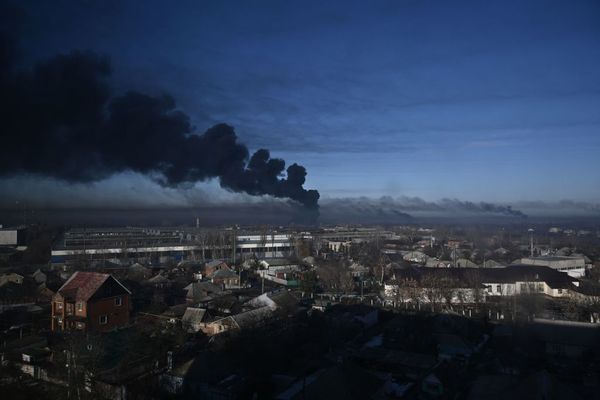While Americans' obsession with presidential politics gains momentum for 2020, other less earthly developments are underway with serious implications for long-term national security.
They involve space, what President Donald Trump calls "a new war-fighting domain." And what appears to be a growing militarization beyond the Earth's atmosphere, including missiles based in space.
Last week, Trump signed a memo putting into motion the creation of a new Space Force that will be part of the Air Force.
The administration's new Missile Defense Review vows to develop new technologies to "ensure that we can detect and destroy any missile launched against the United States anywhere, anytime, anyplace."
China has placed a lunar lander on the far side of the moon, as it continues building its own network of GPS satellites with obvious military guidance applications. Beijing already tested a satellite-killer missile on one of its own orbiters.
Russian President Vladimir Putin has boasted of developing advanced cruise and hypersonic missiles whose speed would essentially thwart any known defenses. Trump has also warned that Iran and other "foreign adversaries, competitors and rogue regimes are steadily enhancing their missile arsenals."
Although North Korea has suspended missile and nuclear-weapons testing, satellite photos indicate the Kim Jung-un regime continues construction on missile sites, even as he holds a second summit with Trump.
The administration's missile defense review, the first in nearly a decade, was itself a year late. It will form the basis for a large chunk of Trump's defense budget request for the 2020 fiscal year.
"We are committed to establishing a missile defense program that can shield every city in the United States, and we will never negotiate away our right to do this," Trump declared.
Much as the Marines are part of the Navy. the Space Force will be attached to the Air Force. Trump adds: "It's ultimately going to be a very, very big part of our defense and obviously of our offense."
Of course, in open societies we inevitably hear more about government intentions than we do from countries such as Russia and China.
But this talk about space forces and space defense plans strikes me as too much like all the talk about the urgent need for greater cybersecurity to halt hacking into government and corporate secrets; it's just a lot of talk to fill rapid-fire news cycles with little evidence of genuine follow-up or action.
Predictably, congressional Democrats sprang into instant action, arguing against even the talk of improved missile defenses and professing fears that just preparing to deter or defend against enemy advances could cause another Cold War.
"Strategic stability is an essential component of U.S. national security," said Adam Smith, the new Democratic chair of the House Armed Services Committee. "It does not serve our long-term interest to take steps that incentivize Russia and China to increase the number and capability of their nuclear weapons."
That's an interesting historical twist since it was Democratic Sen. John Kennedy who in 1960 accused Republicans of allowing the Soviet Union to pull ahead in missile development. It wasn't true, but he was elected anyway.
In actuality, the decades-long Cold War turned out pretty darned well for the U.S. and West since it deterred further territorial expansion by the Soviet Union and involved an arms race that ended up bankrupting that Communist regime, forcing a detente with the Reagan and first Bush administrations.
Rep. Smith probably doesn't recall that since he was only 15 back then.
Another Democrat, Sen. Jack Reed of Rhode Island, warned that developing advanced military technology "comes with a considerable price tag." As if government health care-for-all, free college tuition and a Green New Deal don't.
It would be nice to believe that the ominous and clear threats of Russia, China and Iran, among others, and the paramount importance of ensuring national security would prompt the players in Washington to get their acts together on such a vital agenda.
But last fall, Americans voted collectively for a federal government divided between two ineffective political parties.
That pretty much guarantees gridlock while the country suffers through its next installment of presidential and political anguish. Oh, and enough empty talk to fill up every rapid-fire news cycle for the next 21 months, minimum.







